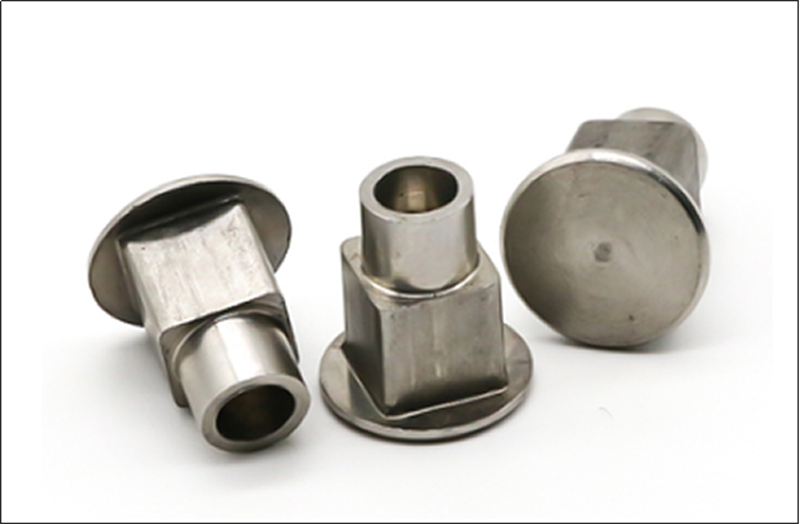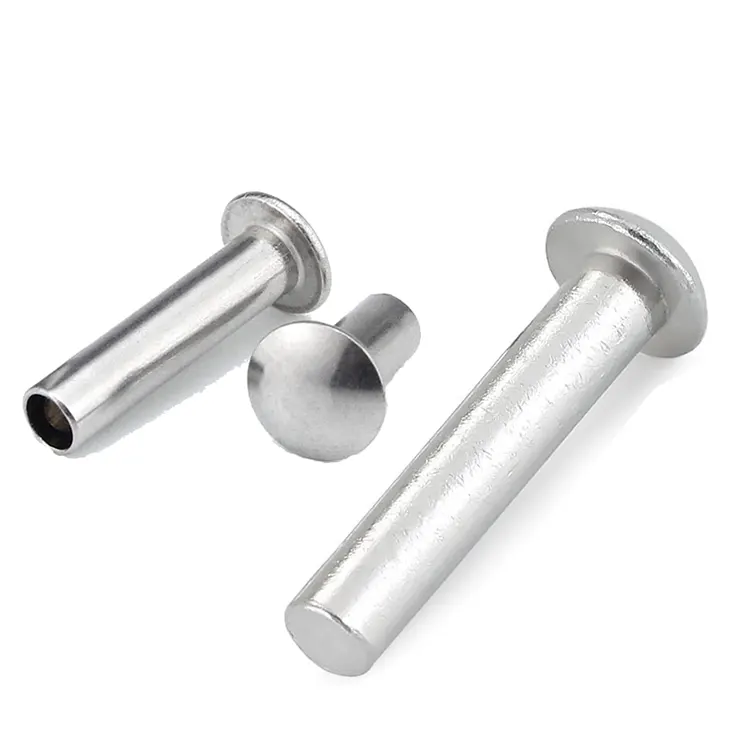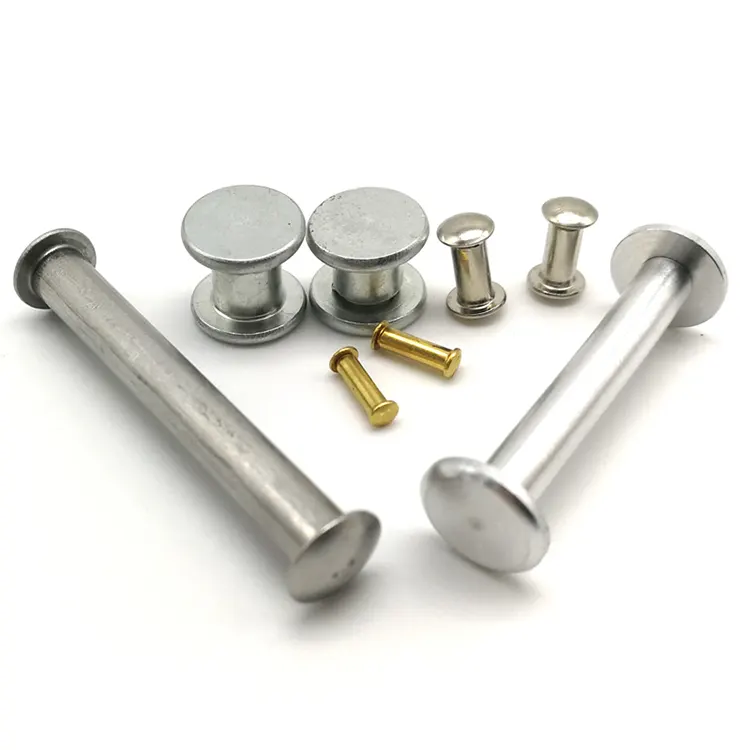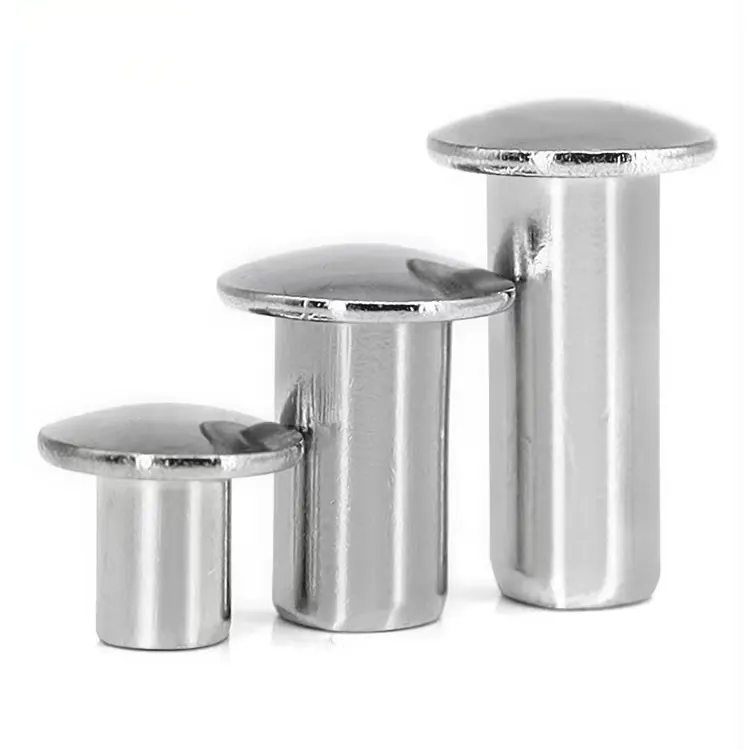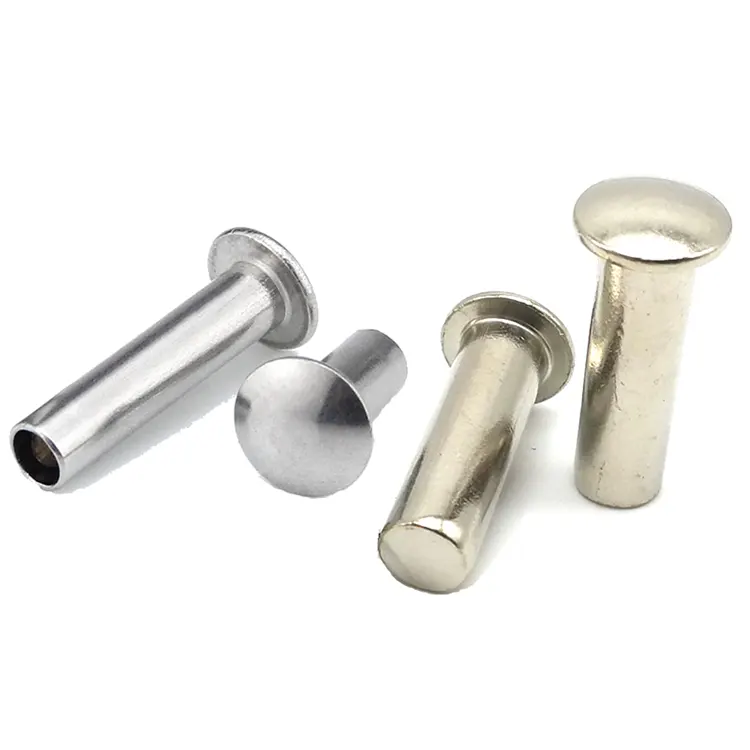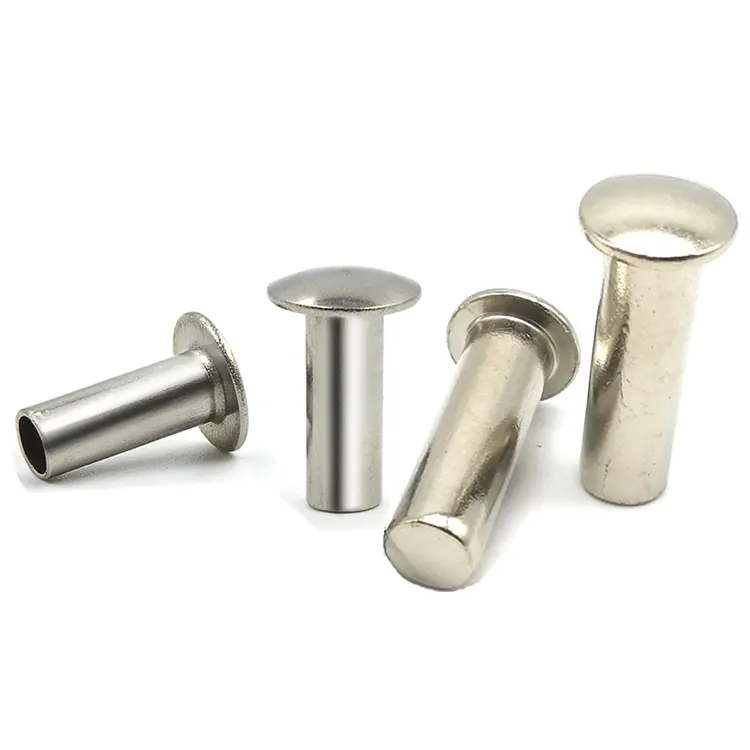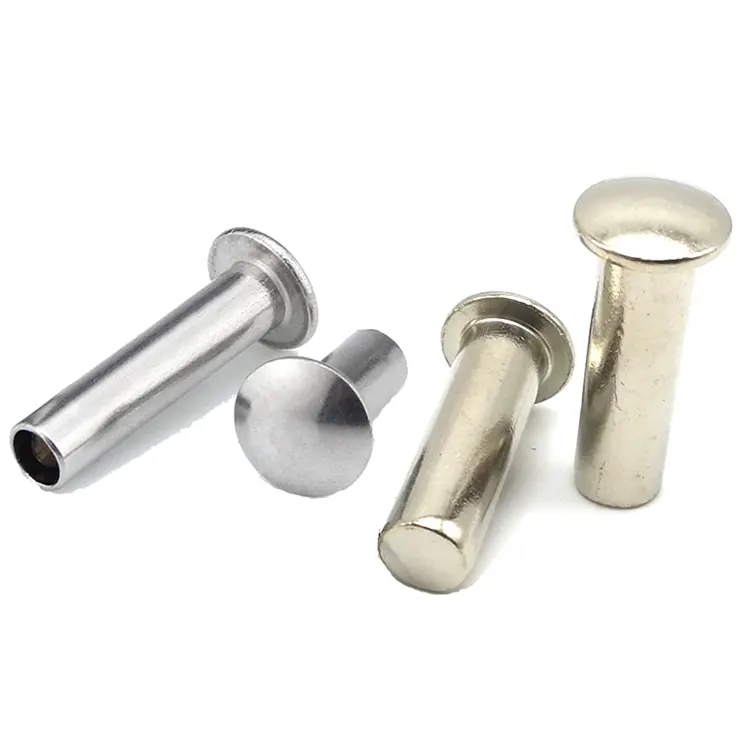Special Rivets
One of Chinese manufacturer of Special Rivets, offering excellent quality at a competitive price, is Notin. Feel free to get in touch.
In the field of mechanical manufacturing and assembly, rivets are a common fastener used to professionally connect two or more parts. According to the degree of standardization, rivets can be divided into two categories: standard rivets and non-standard rivets. The size, shape and material of standard rivets are uniformly specified, while non-standard rivets are customized according to specific needs. The following will introduce the characteristics and applications of non-standard rivets from multiple aspects.
What are non-standard rivets?
Non-standard rivets are also called special rivets. They refer to rivets that do not meet national standards or industry general standards. Their size, material, structure and other parameters are designed and manufactured according to the specific needs of customers. Due to the different connection requirements of different industries and equipment, standard rivets may not meet the requirements of certain special scenarios, so non-standard rivets came into being.
What are the characteristics of special rivets?
(1) Strong customization: Non-standard rivets can be personalized according to factors such as the use environment, stress conditions, and assembly methods to ensure that they perform well in actual applications.
(2) Diverse materials: In addition to common carbon steel and stainless steel, non-standard rivets can also be made of special materials such as aluminum alloy, copper alloy, titanium alloy, etc. to meet different corrosion resistance, strength and weight requirements.
(3) Flexible structure: The structure of non-standard rivets can be adjusted according to needs, such as head shape, stem diameter, length, etc., and can even be designed to be hollow, semi-hollow or other special shapes.
- View as
Universal Head Rivets
A universal head rivet is a type of mechanical connection component in the rivet classification system. Its head has a flat arc-shaped structure and is suitable for joining materials such as thin metal sheets, leather, canvas, and wood. This type of rivet is fixed through cold or hot riveting processes and has the advantages of easy installation and cost-effectiveness in non-sealed pressure-bearing environments. Compared with similar products such as countersunk rivets, universal head rivets are more suitable for riveting thin metal sheets or non-metallic materials such as leather, canvas, and wood due to their protruding hemispherical head design.
Read MoreSend InquiryTwo Piece Rivets
Two piece rivets typically consists of two parts: a female rivet and male rivet. The female rivet has an inner hole at one end and a fixed end at the other. The male rivet, like a solid step rivet, fits into the inner hole of the female rivet. To use, first secure the female rivet to an object, then insert the male rivet into the female rivet and hammer it into place, thus joining the two objects. This design simplifies installation while providing reliable connection strength. Nuote Metals has 10 years working experience of these kind of two piece rivets, welcome to send us your drawing.
Read MoreSend InquiryTruss Head Rivets
Nuote Metals manufactures and sells truss head rivets. We are Located in Dongguan, China, and we have over 40 cold heading machines capable of producing a wide range of rivet specifications and types. We also offer custom rivets. Truss head rivets are a common riveted component, consisting of a shank, head, and tail. They are characterized by a large, flat head and a hollow or solid tail, providing excellent sealing and waterproofing properties.
Read MoreSend InquirySteel Round Head Rivets
Nuote Metals manufactures and sells steel round head rivets in a variety of finishes, including zinc plating, nickel plating, and Dacromet plating. Round head rivets feature a semicircular head shape, offering excellent tensile and shear strength, capable of withstanding heavy loads. The round head design allows the rivet to better conform to the connecting component during connection, improving joint stability and sealing.
Read MoreSend InquirySteel Rivets
Carbon steel rivets are a common mechanical fastener used in a wide variety of industrial and everyday products. Their primary function is to securely connect two or more components together, creating a stable structure. Carbon steel rivets are popular due to their strength, durability, and cost-effectiveness. Nuote Metals has been manufacturing carbon steel rivets for over a decade. Located in Dongguan, China, known as the "World's Factory," we welcome visitors from around the world to visit us.
Read MoreSend InquirySteel Pan Head Rivets
Steel pan head rivets are a common industrial fastener used in a wide range of applications, including automotive, aviation, and construction. Nuote Metals specializes in the production of steel pan head rivets, which are sold worldwide. We offer a wide range of rivets made of various materials, including brass, stainless steel, aluminum, and copper. We can also customize our products with various surface treatments, such as electroplating, pickling, and anodizing, to meet customer requirements.
Read MoreSend InquiryWhat are the characteristics of special rivets?
(1) Strong customization: Non-standard rivets can be personalized according to factors such as the use environment, stress conditions, and assembly methods to ensure that they perform well in actual applications.
(2) Diverse materials: In addition to common carbon steel and stainless steel, non-standard rivets can also be made of special materials such as aluminum alloy, copper alloy, titanium alloy, etc. to meet different corrosion resistance, strength and weight requirements.
(3) Flexible structure: The structure of non-standard rivets can be adjusted according to needs, such as head shape, stem diameter, length, etc., and can even be designed to be hollow, semi-hollow or other special shapes.
Manufacturing process of special rivets
The manufacturing of non-standard rivets involves multiple links, mainly including:
1.Material selection: Select suitable metal or alloy materials according to the use environment. 2. 2.Cold heading or hot heading: Use pressure processing to form the basic shape of the rivet into the metal blank.
3.Turning or milling: Fine-process the details such as the head and stem of the rivet to ensure dimensional accuracy.
4.Surface treatment: Such as galvanizing, nickel plating, anodizing, etc. to improve corrosion resistance or aesthetics.
Advantages and limitations of special rivets
(1) Advantages: They can meet special needs, improve assembly efficiency and connection reliability, and are suitable for complex or high-demand application scenarios.
(2) Limitations: Since they are customized products, the production cost is high, the delivery cycle is relatively long, and customers are required to provide detailed technical parameters.
How to choose suitable special rivets?
(1) Clarify the needs: Determine the key parameters such as the rivet's operating environment, stress conditions, and corrosion resistance requirements.
(2) Material matching: Select the appropriate material based on actual needs to avoid over-design that leads to increased costs.
(3) Communicate with suppliers: Provide detailed technical drawings or samples to ensure that the non-standard rivets produced meet expectations.
What are the main applications of special rivets?
(1) Aerospace: Aircraft, rockets and other equipment have extremely high requirements for the weight, strength and high-temperature resistance of fasteners. Non-standard rivets can be optimized according to specific needs.
(2) Automobile manufacturing: Certain special models or high-performance vehicles may require non-standard rivets to meet the needs of lightweight or high-strength connections.
(3) Electronic equipment: Precision instruments or small electronic equipment may require micro non-standard rivets to ensure the stability and compactness of the connection.
(4) Construction industry: Some special-structured buildings or decoration projects may use non-standard rivets to meet specific installation requirements.
Market status of special rivets
With the advancement of industrial technology, more and more industries have begun to use non-standard rivets to optimize product design. At present, non-standard rivet manufacturers are mainly concentrated in the Yangtze River Delta and Pearl River Delta regions in China, and can provide a variety of customized services. Due to the high unit price of non-standard rivets, its market size is relatively small, but the demand in the high-end manufacturing field continues to grow.
Future development trends
(1) Lightweight design: With the improvement of energy-saving and environmental protection requirements, non-standard rivets made of lightweight materials will be more popular.
(2) Intelligent production: Automated equipment and digital management will further improve the production efficiency and quality stability of non-standard rivets.
(3) Wider application: Emerging industries such as new energy and robotics may drive the growth of demand for non-standard rivets.
In summary, special rivets are highly customized fasteners that can meet special needs that standard rivets cannot meet. Although its production cost is relatively high, it plays an irreplaceable role in industries such as aerospace, automobiles, and electronics. In the future, with the advancement of manufacturing technology, the application scope of non-standard rivets is expected to further expand.






